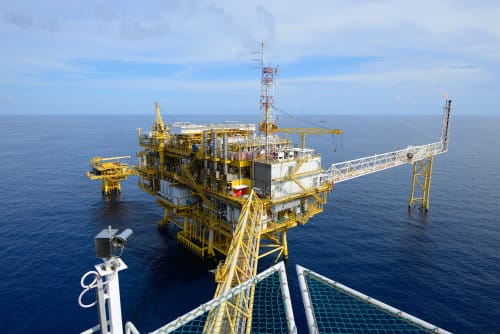After suffering an injury while working on or near the water, you may have several questions:
Contact us today to learn more about your legal rights in a free consultation.
Our experienced maritime lawyers can help you secure the full financial compensation you deserve after a work injury.
Maritime and offshore workers on various vessels, docks, ports, harbors, and other maritime settings are regularly exposed to serious occupational hazards, which often lead to serious injuries. Occasionally, these work accidents can even be fatal. While the nature of the work may be dangerous, the majority of maritime workplace injuries are likely caused by human error.
When a maritime worker suffers a serious injury or loses their life on the job, it’s important that they and their families have financial security. Offshore injuries often require extensive and costly medical treatment with extended periods of missed work. In order to keep up with their everyday bills and account for these new medical bills and other related expenses, injured maritime workers need and deserve financial compensation.
Maritime workers who spend at least 30% of their work hours in the service of a vessel on navigable waters are eligible to seek financial compensation under the Jones Act. This Act allows injured seamen to sue their employers if a work injury was caused by some form of negligence. It also provides maintenance and cure benefits for all injuries, regardless of whether negligence was a contributing factor or not. Maintenance and cure benefits cover the costs of daily living expenses and medical bills.
Maritime workers who do not meet the requirements of the Jones Act may instead file a claim under the Longshore and Harbor Workers’ Compensation Act (LHWCA). These claims are made at the federal, rather than state level like most other workers’ compensation claims. LHWCA claims are made on a no-fault basis, which means it doesn’t matter how your injury occurred. You’re entitled to benefits for any injury, and your employer is usually protected from facing liability.
Maritime and offshore workers regularly suffer a variety of serious injuries, but some of the most common ones include:
Maritime work environments are often chaotic, fast-moving, and unpredictable. This can lead to accidents which cause serious head injuries, such as slip and falls and being struck by equipment or moving objects. These injuries may range anywhere from a mild concussion to a traumatic brain injury, and some accidents involving impact to the head can be fatal. Even if a head injury doesn’t feel severe, it’s important to seek medical attention anytime you’re involved in an accident which involves an impact to your head.
Back and spinal cord injuries can occur in workplace accidents or due to wear and tear from heavy lifting and other physical labor. Fall accidents frequently lead to back injuries and spinal cord damage. It’s extremely important for all maritime work settings to have proper fall protection, including guardrails and safe and secure ladders. These injuries often require long rehabilitation periods and may lead to chronic pain or paralysis.
Certain maritime workplaces have chemicals and fire hazards which can lead to devastating burn injuries and permanent scarring. These burns may occur due to contact with acidic chemicals, in kitchen accidents involving flames, oil and other materials, or in electrical accidents and accidental fires.
Losing a limb in a workplace accident is one of the most devastating and traumatic injuries you could experience. These workers may be unable to return to any form of work following the injury and suffer from psychological trauma from the accident, such as post-traumatic stress disorder (PTSD). These accidents often involve defective equipment or being crushed by heavy machinery and objects in accidents involving human error.
Not all work injuries occur in unexpected accidents. In many cases, injuries may slowly build up over time due to overworking the same muscle groups throughout the years. Because of the physically demanding nature of the work, these injuries are common in many maritime occupations. A repetitive motion injury may involve chronic pain and impaired function, which can make it difficult or impossible to return to work. Returning to the same duties which caused the injury will only make your condition worse.
Any injury or illness directly related to your work conditions is eligible for financial compensation. This includes injuries which occur in workplace accidents (such as head injuries and broken bones), repetitive motion injuries (such as chronic back pain), and occupational illnesses (such as respiratory diseases from chemical exposure).
However, it’s common for employers and insurance companies to dispute that your injury is work-related – especially in cases involving repetitive motion injuries and occupational illnesses. If your injury occurred due to employer negligence, you’ll likely face even more resistance and may need to appear in court.
This is why it’s often wise to be represented by an experienced maritime lawyer who knows how to navigate the claims system and deal with difficult and powerful insurance companies.
Seeking financial compensation after a maritime injury can be difficult, confusing, and intimidating. Maritime law is extremely complex, and you may be unsure of which form of compensation you’re entitled to. Additionally, injured maritime workers often face resistance from their employers and insurance companies.
In order to get through this complex system and deal with the tactics of insurance companies and their lawyers, it’s often necessary to have your own lawyer who has experience representing injured maritime and offshore workers. A lawyer can represent you through all aspects of the claims process and make sure you provide the documents and evidence you need for a successful claim.
To find out more about your rights and begin the process of filing for compensation, contact one of our maritime injury lawyers today for a free consultation.


 info@legalherald.com
info@legalherald.com